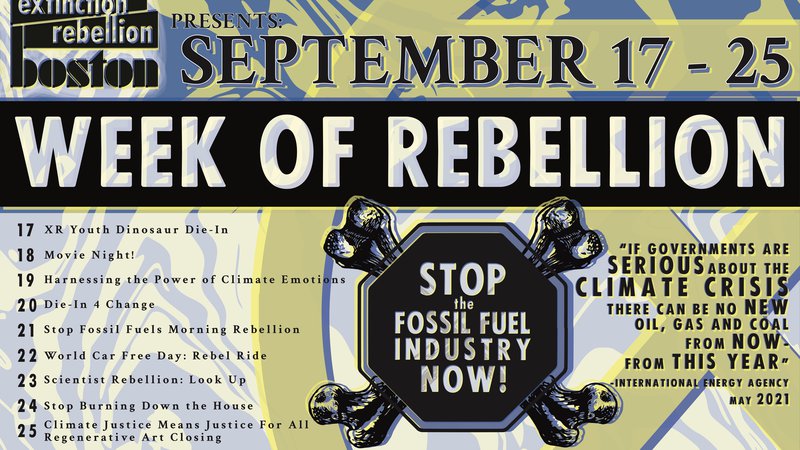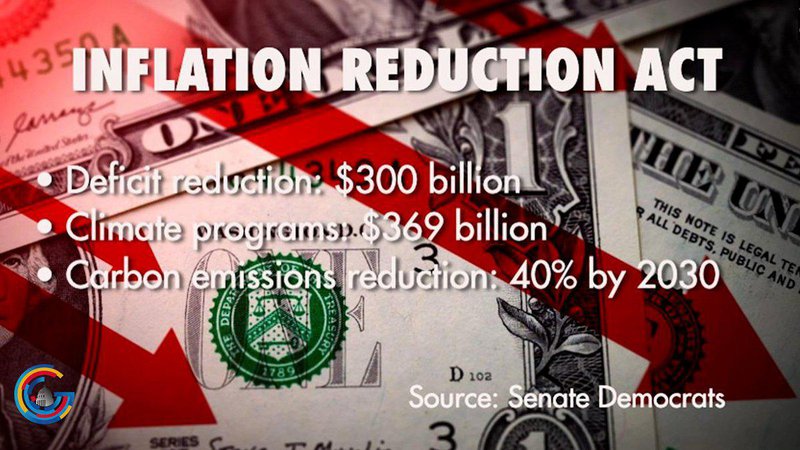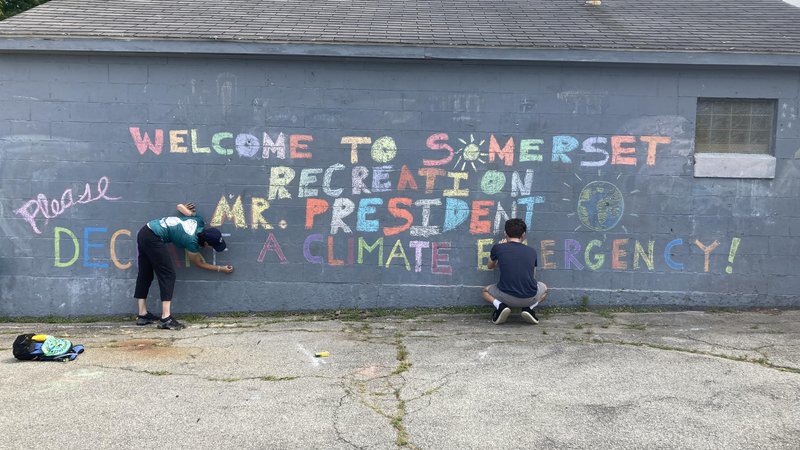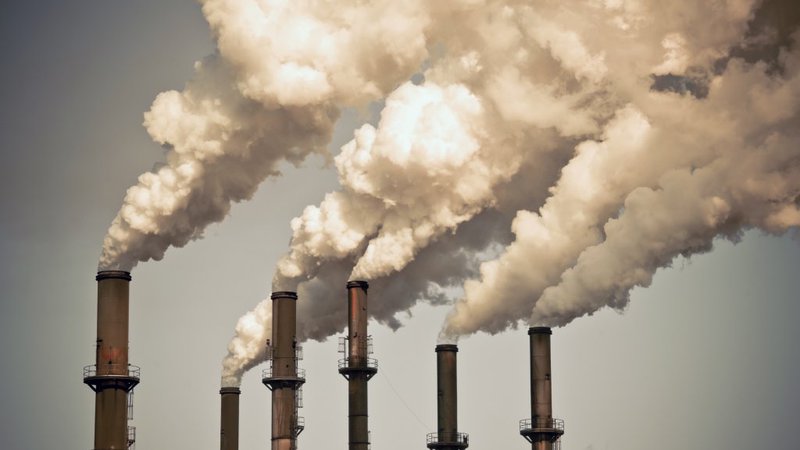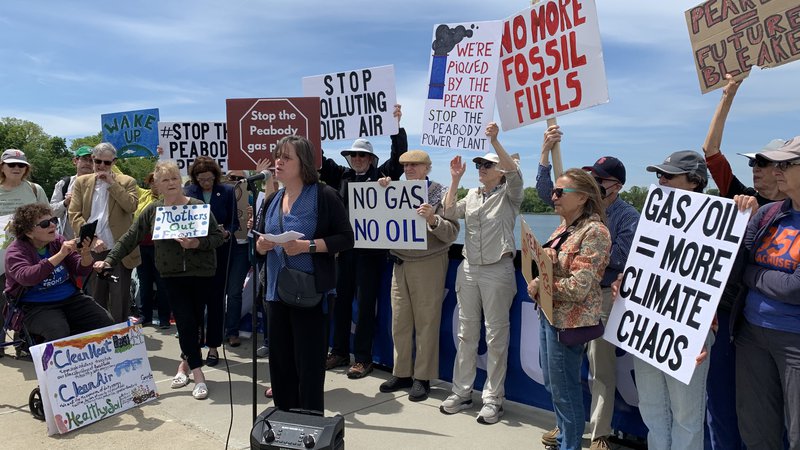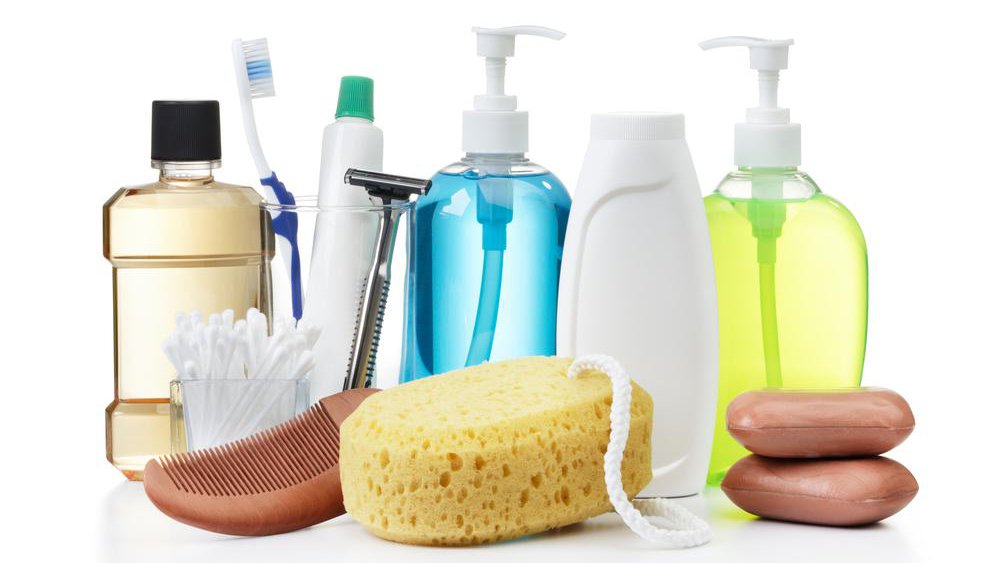
How to cut back on your household’s plastic, chemicals, and trash
As much as we need to collectively mobilize and pressure governmental decision-makers around the world to transition off fossil fuels, power the grid off renewable energy, and protect ecosystems and biodiversity, we need to change our individual habits, as well. Individual choices are especially important for people living in first-world countries, since we are responsible for producing the vast majority of greenhouse gas emissions and waste products because of our excessive consumption - way beyond what is necessary to meet our basic needs.
Green packaging and products that avoid excessive deforestation and polluting chemicals will be necessary to avoid ecological collapse, which has been shown by the IPBES to be the leading cause of the Sixth Mass Extinction, the first mass extinction caused from human behavior. According to research done by the IPBES, ecological destruction is even more dangerous than climate change:
- Changes in land and sea use
- Direct exploitation of organisms
- Climate change
- Pollution
- Invasive alien species.
Plastics continue as a huge environmental and health threat and can take hundreds of years to breakdown. Many products are packaged in throw away plastics that sit in landfills, polluting our oceans, killing marine life, and polluting our land and drinking water, eventually coming back to harm human health.
Bioplastic offer hope, but recent research suggests that bioplastic may not be a good solution to our plastic problem. There are still a lot of unknowns about eco-friendly plastics. Recycling and reusing old plastics may be a solution as long as the water and energy it takes to transform the old plastic doesn't outweigh environmental benefits.
Below are some suggestions for your household
The list is long and may feel overwhelming. Replacing things slowly over time and adjusting consuming habits has worked well for folks moving towards an environmentally friendly lifestyle.
Some of the products may be more expensive than what you are currently paying, but you are supporting an attempt to ensure that Earth is healthy and livable for our children and future generations. There are also options that eradicate single use items and end up saving money in the long run.
Also check out this article about ways to bring your household closer to carbon neutrality.
Oral Care
- Avoid plastic toothbrushes and switch to bamboo and wood toothbrushes.
- Check out toothpaste bits which comes in a glass jar, with refills available that are packaged in cardboard. Zero waste tooth powders are another good option.
- Zero waste mouthwash tablets.
- Home-made sea salt mouthwash and oil pulling are good options for environmentally friendly oral health. Research on the benefits of oil pulling can be found here.
- Hydrogen peroxide and baking soda are cheap household items that can be used as alternatives to toothpaste and teeth whiteners.
- Refillable dental floss , more options here
Shampoo and Conditioner
Shampoos and Conditioners are usually packaged in plastic, but shampoo and conditioner bars are a greener option, made with fewer chemicals and responsibly packaged. Apple Cider Vinegar is another solution for hair and scalp health, and try out these green hairsprays.
Makeup
Most makeup is made with chemicals that harm human health and ultimately ends up harming entire ecosystems. Some makeup and cosmetics are even made with whale oil. But, there are green makeup options that avoid chemicals, plastic packaging, and the killing of wildlife. More options here, and try reusable makeup removers instead of one time use products.
Perfume and Skincare
Try perfume oils, which have fewer and less harmful chemicals than traditional perfumes, or organic and chemical free perfumes. Check out zero waste & organic moisturizers and skincare products and zero waste shaving bars which all use fewer chemicals and are responsibly packaged.
Sunscreen
Some suncreens are full of toxic chemicals that harm human health and also harm ecosystems, coral, and marine life. WebMD suggests avoiding the sun between 11 and 4. If you have to be exposed to the sun, covering your skin helps, but that is not always an option.
Mineral based sunscreens are a good solution and act as a physical barrier for the skin instead of a chemical barrier. They are reef safe and especially helpful for people who suffer from chemical sensitivities and can't tolerate preservatives and other low-level chemicals commonly found in household products. More mineral based and reef friendly sunscreens here.
Deodorant
Deodorant is another common item that is packaged in plastic and ends up sitting in landfills and polluting the ocean and land. There are several companies creating plastic free deodorant, or selling refills so you don't have to buy new plastic packaging every time you need new deodorant. More eco and health friendly options here, or make your own!
Razors
Razors are another throw away plastic item that end up polluting and sitting in landfills. There are high quality reusable razors to replace cheap plastic razors, with the option of ordering new blades, which saves money in the long run. More options here.
Ear Swabs
Ear swabs are usually made of single use plastic, cotton, or paper, which requires deforestation and energy to create, often ending up in landfills or polluting the ocean and harming marine life. There is a new item called the "Last Swab" that can be cleaned and reused. Bamboo ear swabs are also a good biodegradable option.
Baby Wipes
Baby wipes, also known as wet wipes, are often made of synthetic materials that end up breaking down into microplastics, clogging up riverways, getting into the ocean, and harming marine life and other wildlife. Here are some alternatives to wet wipes , or check out these biodegradable plant-based options.
Toilet Paper
Toilet paper is a single-use paper product, and it produced in a polluting wasteful way. Old-growth forests are cut down, water is wasted to clean and prepare the paper pulp, and fossil fuels are burned for the manufacturing process and transportation. Recycled TP is better than paper harvested from trees, but bamboo TP is even more eco-friendly.
A bidet is another good option, and it is cost-effective. The bidet uses only one-eighth of a gallon of water, while it takes about 37 gallons of water to make a single roll of toilet paper. Investing in a bidet seat or bidet attachment can lower your spending on toilet paper by 75% or more.
Feminine Products
In 2018, people in the U.S. bought 5.8 billion tampons, and over the course of a lifetime, a woman will use between 5 and 15 thousand pads and tampons, with most ending up in landfills as plastic waste. There are solutions including plastic and bleach free tampons, flex/deva cups, and washable pads.
Laundry Detergent
Laundry detergent is almost always packaged in heavy and bulky plastic containers. There is a new option that is taking off, Laundry sheets, which are sold in cardboard packaging and made with fewer chemicals.
Household Cleaners
Many household cleaners are full of toxins that harm our health and planetary health. There are safe, non-toxic, and biodegradable options that are as effective.
Office Supplies
Shop for sustainable office supplies that doesn't harm planetary health. Simply replacing some of your office products can be a small adjustment that makes a tangible difference. Every home and business should consider office supplies that are easier on the environment.
Tea Bags
Yes, even tea bags can be harmful! Tea bags are commonly made of polluting plastics that end up in your tea and sitting in landfills. Buying loose leaf tea with an infusing pot or an infuser for a cup is a good option to avoid unnecessary household waste. There are also brands that use plastic free tea bags.
Bottled Drinks
Instead of buying plastic bottled water and drinks, check out brita filters, reverse osmosis filters, or 2 or 3 filter systems.
Plastic cups, straws, utensils, & bags
- Bring your own cup when you order a drink
- Carry portable utensils instead of picking up the plastic options when you go out to eat
- Bring your own bag when you go shopping. More info on switching from plastic bags to other bags.
- Use mesh produce bags for food shopping
- Buy a few glass, stainless steel, or bamboo straws instead of using plastic throw away straws
Clothing
Our clothing is often made at least partially of plastic, and even the act of washing them releases toxic chemicals into the land and water. Look for plastic-free clothing companies that don't harm the environment when they breakdown and don't release chemicals when they are washed (they are also better for your health and last longer!) Air drying your clothing is another energy saving option.
More Ideas and Resources
- Avoid unnecessary chemicals like pesticides, insecticides, and herbicides.
- Research the potential hazards and health concerns of common household chemicals.
- When you go grocery shopping, try to buy products packaged in paper or glass instead of plastics.
- Dispose of old medications properly so they do not get into the water supply. Also check your town for local drop-offs.
- Recycle plastics, glass, and paper.
- Carefully dispose of old electronics.
- Dispose of oil, paints, and other household chemicals during your town's hazardous waste collection day.
- Be wary of items that are labeled eco-friendly, organic, natural, environmentally safe, or green without researching whether they actually are!
Reconsider the idea that buying and owning more or newer things will lead to a higher level of happiness
Related Stories:
Featured:
-
The third annual Week of Rebellion is full of opportunities for celebration and action!
-
Our government had the opportunity to finally turn our state into a "climate leader," and they decided yet again to prioritize profits and political posturing over the well-being of residents.
-
Prominent climate scientists and activists demand immediate climate action in the United States.
-
Stop the Fossil Fuel Industry, Now: List of events for Extinction Rebellion Boston's September week of rebellion
-
A compilation of books, movies, articles, and ways to take action to protect Black lives
-
Nadia Colburn, PhD and member of Extinction Rebellion Media team, discusses how to talk about the climate and ecological crisis with family and friends.
Upcoming Events:
-
Sun Jul 20th @ 4 p.m.
-
Fri Jul 25th @ 6 p.m.
-
Sun Jul 27th @ 1 p.m.

